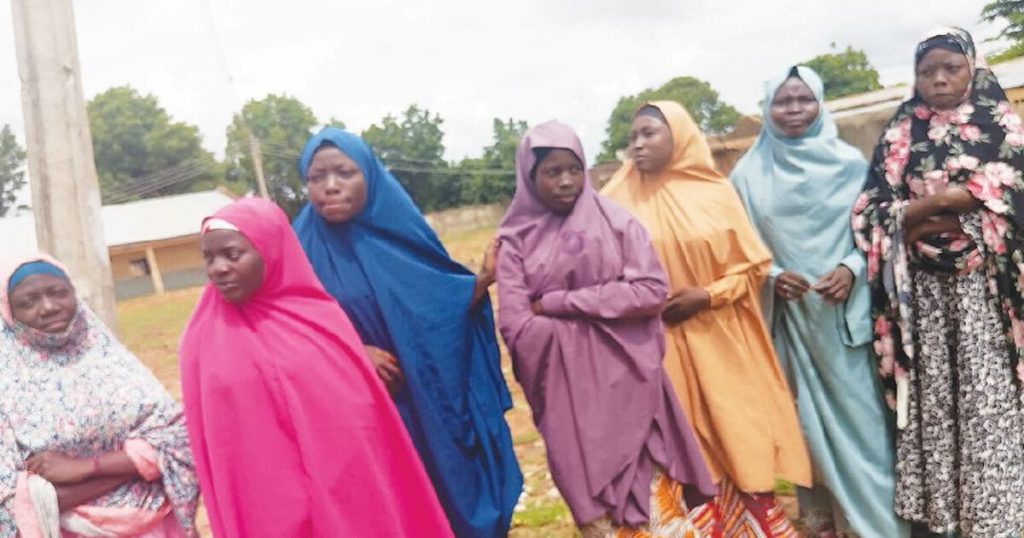In the heart of Denge-Shuni Local Government Area, a transformative wave is sweeping across the community, rekindling hope and empowering young girls through education and skill development. A collaborative project spearheaded by UNICEF has breathed new life into the educational landscape, bringing girls back to the classrooms and equipping them with the tools to shape their own futures. This initiative, lauded by local leaders and community members alike, serves as a beacon of progress, demonstrating the profound impact of investing in the potential of young women. Hon. Abubakar Abud Amanawa, the School Based Management Committee Chairman and Special Adviser on Industrial Development, has been a vocal advocate for this impactful endeavor, highlighting the remarkable turnaround it has brought about.
The project’s core objective is to restore and expand access to education for girls in Denge-Shuni. Many of these girls had previously dropped out of school due to various socio-economic factors, their dreams and aspirations seemingly dimmed. However, the UNICEF intervention has reversed this trend, facilitating their re-enrollment and witnessing a steady increase in the number of girls returning to education. This resurgence in female enrollment signifies a shift in community perspectives towards recognizing the invaluable role of education in empowering girls and uplifting communities. The project is not simply about putting girls back in school; it’s about providing them with a pathway to a brighter future.
Beyond formal education, the initiative incorporates vocational training programs designed to equip the girls with practical skills relevant to their local context. These skills empower them to become self-reliant, contributing members of their families and the broader community. The training ranges from basic literacy and numeracy to specialized vocational skills, enabling them to generate income and improve their livelihoods. This holistic approach addresses both the immediate needs and long-term aspirations of the girls, preparing them for a future where they can actively participate in the economic and social development of their community. The combination of formal education and vocational training provides a comprehensive platform for personal growth and societal contribution.
The community’s response to the initiative has been overwhelmingly positive, with parents and local leaders embracing the project and recognizing the transformative power of education and skill development. This widespread support has created a conducive environment for the project to flourish, fostering a sense of collective responsibility for the education of girls. The community’s ownership of the project is crucial for its sustainability and long-term success, ensuring that the gains made are not transient but rather become ingrained within the fabric of the community. This positive reception also highlights the importance of community engagement in driving social change and development initiatives.
The project extends beyond the realm of education, aligning with broader strategies to foster industrial development and improve overall community welfare. This integrated approach recognizes the interconnectedness of education, economic development, and social progress. By equipping girls with education and skills, the project contributes to a more productive workforce, driving economic growth and creating a more prosperous community. This ripple effect benefits not only the girls themselves but also their families and the community as a whole, leading to a more inclusive and equitable society. The project exemplifies the transformative potential of education to catalyze positive change across multiple sectors.
While the progress achieved in Denge-Shuni is commendable, the journey towards ensuring quality education for all girls is ongoing. Sustained commitment from government agencies, donor organizations, and the community is crucial for the continued success of this initiative. The challenges that lie ahead require collaborative efforts and continued investment in education to overcome. This commitment must translate into tangible actions, including adequate funding, infrastructure development, teacher training, and ongoing community engagement. By working together, stakeholders can ensure that the gains made in Denge-Shuni are not only sustained but also replicated in other regions, creating a ripple effect of positive change across the country. The success of this initiative serves as a model for other communities, demonstrating the tangible benefits of investing in the education and empowerment of girls. The project’s impact resonates beyond Denge-Shuni, inspiring hope and showcasing the transformative power of education in building a brighter future for all.
The testimonials of the beneficiaries themselves provide the most compelling evidence of the project’s impact. Young women like Saratu Denge, a 19-year-old from one of the villages, speak of renewed hope and a sense of empowerment. Saratu expresses gratitude for the opportunity to return to school, a prospect she once thought impossible. The project has not only provided her with literacy skills but also equipped her with vocational training, enabling her to generate income and support herself. Her story exemplifies the transformative power of the initiative, showcasing how it is changing lives and empowering young women to take control of their futures. Saratu’s story, and those of many other girls like her, underscores the profound impact of the project and reinforces the importance of continued investment in education and skill development for girls. Their voices echo a powerful message: education is not just a right, but a catalyst for individual and societal transformation.














